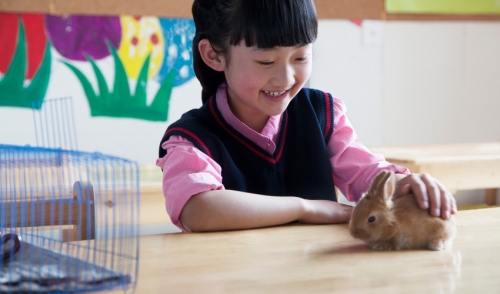A new pet can be a wonderful companion and an exciting addition to your family, but it isn’t as easy as just bringing an animal into your home. It is essential to provide proper care to any pet, whether you adopt a cat or dog, a small animal like a rabbit, ferret, chinchilla, or guinea pig, or any type of reptile, fish, or bird.
Why Proper Care Matters
Different pets have different needs for diet, housing, daily activities, and more. Every pet needs a safe, secure environment, and proper veterinary care with suitable experience for the type of pet is critical. All pets need adequate attention for training, grooming, and bonding as well. Good overall care will give your pet a safe, comfortable home, which will ensure the pet is not under unnecessary stress and that its basic needs are met. A pet that is properly cared for will be healthier and will live a longer, happier life so it can remain your friendly companion and part of your family for many years.
Top Necessities When Caring for a New Pet
No matter what type of pet you plan to adopt, every animal will need…
- Diet and Feeding Pets need to eat a nutritious diet for their animal type and needs. Some animals may need multiple meals per day, while others may be fed less frequently. A varied diet might be critical for adequate nutrition, or your pet may need just one type of well-balanced food. When feeding your pet, the quality of the food as well as the amount is important to consider to keep your pet at a healthy weight.
- Housing All animals need a place to call their own, whether it is a simple bed or crate space or a full enclosure such as an aviary, aquarium, cage, or terrarium. The housing needs to be of an appropriate size for the animal, and both indoor and outdoor housing may need to be provided. Transportation crates may also be necessary. All housing should be kept clean and in good repair so it is safe for the pet at all times.
- Water A fresh, clean supply of water is essential for any pet’s health. Drinking water needs to be accessible for each pet depending on how they prefer to drink, whether from open dishes or drip bottles. Some reptiles need water to partially submerge, and of course fish and aquatic pets need suitable water to create their entire habitat.
- Exercise All animals require regular exercise to stay healthy and prevent mobility problems due to inactivity. For some animals, this may mean opportunities to climb, cling, or dig, while others will need large spaces for running and play. Specialized equipment may be part of an animal’s activity space as well.
- Stimulation A bored pet may develop high levels of stress or anxiety, which could lead to aggression, destructive behavior, or other problems. Mental stimulation through games and play, training, changing locations, varied shelter, and other options can keep an animal engaged and interested so it stays mentally healthy.
- Socialization All pets need proper socialization to be accustomed to necessary handling, such as for grooming, veterinary care, or transportation. Training classes can be part of socialization, as well as exposing the animal to different people, noises, and situations to help broaden its experiences. Good socialization can also reinforce the bond you share with your pet.
- Grooming Part of healthy pet care includes proper grooming. This may mean caring for the animal’s skin and fur, teeth, nails, nostrils, and eyes as needed. Grooming can be professionally arranged, or pet owners can learn the proper method for grooming their pets.
- Safety Part of a pet owner’s responsibility is to ensure their pet is safe. This means safeguarding the pet from any potential hazards, including predators or unscrupulous behavior, toxic contamination and poisoning, or household hazards such as electrical shocks, choking hazards, and sharp edges. Extreme temperatures, hazardous terrain, and accidents are all problems that pets need protection from.
- Licensing Depending on the type of pet, a registered license may be required by local municipalities, or there may be more extensive permits needed for exotic or unusual pets. This registration needs to be kept updated, and pet owners should be prepared to meet any licensing or registration requirements such as providing breed certification, vaccination records, ownership papers, or other documentation.
- Veterinary Care All pets will need proper veterinary care with a professional experienced with that type of pet and its unique needs. Regular vaccinations and checkups are essential, and a pet’s veterinary needs may change as it ages or if the owner decides to breed the animal.
- Identification A responsible pet owner will always take steps to properly identify their pet in case it accidentally escapes or gets lost. Microchipping is a good choice for many types of pets, and identification tags are another easy option. Updated photos that show a pet’s size and any unique markings can also help with identification if needed.
Before You Adopt Any Pet
No matter what type of new pet you are considering, always do your research first to be sure you can meet the animal’s needs. Take into account the animal’s lifespan and how its needs may change over the years, as well as how your own situation may change and whether or not you can commit to the pet’s lifetime to provide it the best possible care. By ensuring you can meet your new pet’s needs, you can give it the best life and it will be around as your friend and companion for many years.






Comments